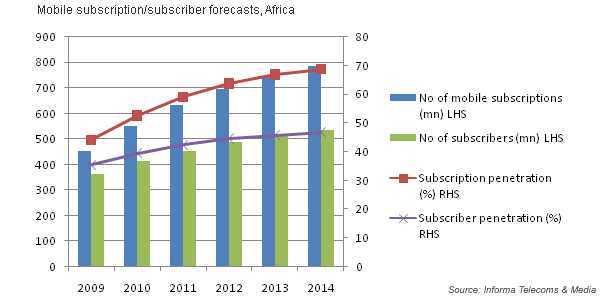Touted for so long as the land of opportunity for telecoms investors, Africa is on the brink of a deal that is could transform its competitive landscape. But what does the long expected deal between Bharti Airtel and Zain say about the state of the African market? That Zain does not regard Africa as profitable and that it wants to focus on its more “lucrative” MENA footprint? Or that Airtel sees such potential that it is prepared to spend almost $11bn as a means of entering this land of opportunity?
March 25, 2010

Touted for so long as the land of opportunity for telecoms investors, Africa is on the brink of a deal that is could transform its competitive landscape. But what does the long expected deal between Bharti Airtel and Zain say about the state of the African market? That Zain does not regard Africa as profitable and that it wants to focus on its more “lucrative” MENA footprint? Or that Airtel sees such potential that it is prepared to spend almost $11bn as a means of entering this land of opportunity?
On Wednesday, Zain’s board of directors met in Kuwait to discuss Bharti’s offer $10.7bn offer for the Kuwait-based carrier’s sub-Saharan African assets. The due diligence process has been completed and a definitive agreement is expected to be signed in the coming days, Zain said.
Analysts at Informa Telecoms & Media say the case for Africa as an attractive investment destination is based largely on subscription growth potential. At the end of 2009, there were just over 450 million active subscriptions across the region, accounting for a penetration rate of below 45 per cent. Such is the preponderance of multi-SIM activity in Africa that in fact single user penetration is closer to 35 per cent and with Informa forecasting that half the region’s population will remain unconnected in 2014, the potential for connecting new customers is therefore tremendous.

africamobilesubs
But there are obstacles to be overcome. As Zain discovered, the big challenge is how to create a profitable business from a typically low revenue generating population that is also geographically dispersed throughout unconnected rural areas. And understanding the complexities of Africa’s many diverse markets is critical, not least with several different regulatory directives and competition with as many as five or six other carriers.
The natural consequence of this is a period of market consolidation, and it looks increasingly likely that a new investor group will enter Africa for the first time. So for any investor, Bharti Airtel included, the import of a new business model must be done with the full appreciation of Africa’s own specific dynamics.
It is with this in mind that Informa principal analysts Nick Jotischky and Matt Reed have put together a guide to investing in Africa’s mobile telecommunications market in ten steps, the first instalment of which will be published next week.
About the Author(s)
You May Also Like









.png?width=300&auto=webp&quality=80&disable=upscale)


_1.jpg?width=300&auto=webp&quality=80&disable=upscale)


.png?width=800&auto=webp&quality=80&disable=upscale)